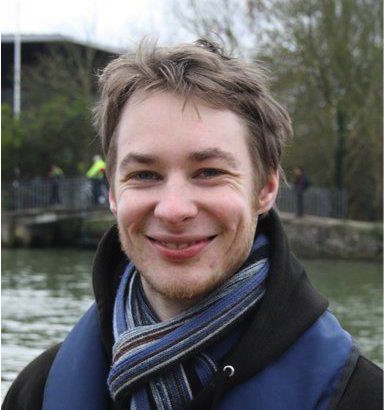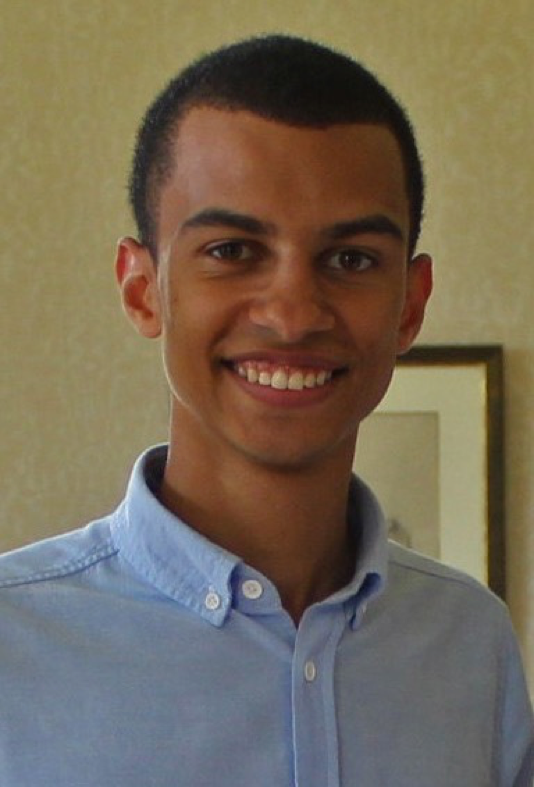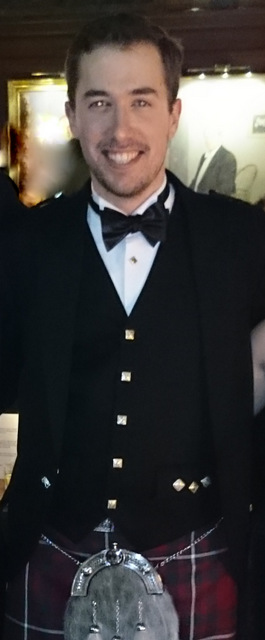There is a thriving community of graduate students, both master’s and DPhil, studying topics related to WWI at Oxford. The Globalising and Localising the Great War project aims to facilitate dialogue between them: please do get in touch if you wish to be added to our mailing list. The following graduate students are among those assisting with the development of the project:
 Charlotte Bennett (Wolfson College) is completing her DPhil in History on Irish and New Zealand adolescents during the First World War. Focussing on prestigious secondary schools, her research explores how the conflict disrupted elite educational environments and student reactions to such interventions. Both Ireland and New Zealand contributed heavily to Britain’s imperial war-effort, and youth were targeted by sustained cultural mobilisation efforts. In order to encourage particular behavioural responses, teachers and other authority figures explained the war’s significance and localised impacts with reference to prominent conceptualisations of citizenship and national identity. The necessity of imperial loyalty held sway in New Zealand and parts of Ireland, for example, whilst empathy for the plight of Belgium prompted support amongst some Irish Catholics. Over time, however, war-related pressures on schools increased, and mass fatalities and the question of conscription exacerbated underlying socio-political divisions in both home-front societies. Utilising school periodicals, children’s writings, and retrospective memoirs, Charlotte’s research brings to light the experiences of middle-class Irish and New Zealand adolescents throughout the 1914-18 period. She is particularly interested in cross-national parallels illuminating why youth engaged with the conflict, such as the influence of socio-economic status, gender, religious membership, and political affiliation.
Charlotte Bennett (Wolfson College) is completing her DPhil in History on Irish and New Zealand adolescents during the First World War. Focussing on prestigious secondary schools, her research explores how the conflict disrupted elite educational environments and student reactions to such interventions. Both Ireland and New Zealand contributed heavily to Britain’s imperial war-effort, and youth were targeted by sustained cultural mobilisation efforts. In order to encourage particular behavioural responses, teachers and other authority figures explained the war’s significance and localised impacts with reference to prominent conceptualisations of citizenship and national identity. The necessity of imperial loyalty held sway in New Zealand and parts of Ireland, for example, whilst empathy for the plight of Belgium prompted support amongst some Irish Catholics. Over time, however, war-related pressures on schools increased, and mass fatalities and the question of conscription exacerbated underlying socio-political divisions in both home-front societies. Utilising school periodicals, children’s writings, and retrospective memoirs, Charlotte’s research brings to light the experiences of middle-class Irish and New Zealand adolescents throughout the 1914-18 period. She is particularly interested in cross-national parallels illuminating why youth engaged with the conflict, such as the influence of socio-economic status, gender, religious membership, and political affiliation.
 Jack Doyle (St Hilda’s College) is beginning a DPhil on combat and identity in aerial warfare. Drawing from both military and civilian perspectives, Jack’s thesis will explore British, French, and American fighter pilots as combatants and cultural icons throughout the First World War, as the conflict where aviation became militarised. The legacy of fighter pilots as ‘knights of the air’ remains a powerful trope in pop culture; however, early fighter pilots have gone relatively under-examined as a distinct combat culture situated within an unprecedented kind of warfare. This ‘aviator myth’, which emerged early on in the War as a transnational heroic narrative amongst military and civilian communities alike, nevertheless profoundly influenced the social development of aviation cultures and the tactics, technology, and organisation of fighter-based air war in both World Wars. Jack will examine the relationship between the nature of aerial combat and transnational cultural perspectives of the air war, considering combat theory, the unique nature of fighting, killing, and dying in the air, conceptions of soldierhood, and public and private identities in wartime.
Jack Doyle (St Hilda’s College) is beginning a DPhil on combat and identity in aerial warfare. Drawing from both military and civilian perspectives, Jack’s thesis will explore British, French, and American fighter pilots as combatants and cultural icons throughout the First World War, as the conflict where aviation became militarised. The legacy of fighter pilots as ‘knights of the air’ remains a powerful trope in pop culture; however, early fighter pilots have gone relatively under-examined as a distinct combat culture situated within an unprecedented kind of warfare. This ‘aviator myth’, which emerged early on in the War as a transnational heroic narrative amongst military and civilian communities alike, nevertheless profoundly influenced the social development of aviation cultures and the tactics, technology, and organisation of fighter-based air war in both World Wars. Jack will examine the relationship between the nature of aerial combat and transnational cultural perspectives of the air war, considering combat theory, the unique nature of fighting, killing, and dying in the air, conceptions of soldierhood, and public and private identities in wartime.
 Ben Eacott (Linacre College) is completing his DPhil on the Imperial Russian Navy during the last years of its existence, a period in which it experienced several major upheavals in the forms of the Russo-Japanese and First World Wars, a series of violent mutinies, and finally, revolution. The image of the Russian sailor as a revolutionary firebrand is one engrained in popular understanding, yet little has been done to determine what factors drove sailors to such extremes. Exploring officer/sailor backgrounds and their relations in peace and wartime, Ben assesses to what extent a variety of factors, including perceptions of class origins, the living and working conditions within the navy, methods of maintaining authority and discipline, and the successes and failures of revolutionary agitation, combined to create a service that exploded with violence during the 1917 revolution. In studying naval personnel as a distinct group, rather than simply as waterborne members of Russian society, Ben’s work tries to refocus traditional perceptions of military forces in war and revolution to determine whether external radicalisation or internal unrest causes soldiers and sailors to turn against the state they are expected to serve.
Ben Eacott (Linacre College) is completing his DPhil on the Imperial Russian Navy during the last years of its existence, a period in which it experienced several major upheavals in the forms of the Russo-Japanese and First World Wars, a series of violent mutinies, and finally, revolution. The image of the Russian sailor as a revolutionary firebrand is one engrained in popular understanding, yet little has been done to determine what factors drove sailors to such extremes. Exploring officer/sailor backgrounds and their relations in peace and wartime, Ben assesses to what extent a variety of factors, including perceptions of class origins, the living and working conditions within the navy, methods of maintaining authority and discipline, and the successes and failures of revolutionary agitation, combined to create a service that exploded with violence during the 1917 revolution. In studying naval personnel as a distinct group, rather than simply as waterborne members of Russian society, Ben’s work tries to refocus traditional perceptions of military forces in war and revolution to determine whether external radicalisation or internal unrest causes soldiers and sailors to turn against the state they are expected to serve.
 Ashley Garber‘s (Kellogg College) doctoral research analyses the relationship between generations, memory and identity. Utilizing sources from veterans’ organisations and regimental associations in America and Britain, she looks specifically at how interpretations of the First World War and of veteran identity in society change in relation to generational shifts in leadership. Built upon the experience of the First World War, the veterans’ groups in her study espoused views of that conflict that helped cultivate membership and define veteran status during the interwar period. After 1939, the expansion of membership to include ex-servicemen of subsequent conflicts required revisions to these tenets in order to welcome new veterans and foster unity. Ashley uses leadership cohorts as defined by specific conflicts to chart these revisions, in the hope of discovering more about the role that generations play in shaping memory and identity.
Ashley Garber‘s (Kellogg College) doctoral research analyses the relationship between generations, memory and identity. Utilizing sources from veterans’ organisations and regimental associations in America and Britain, she looks specifically at how interpretations of the First World War and of veteran identity in society change in relation to generational shifts in leadership. Built upon the experience of the First World War, the veterans’ groups in her study espoused views of that conflict that helped cultivate membership and define veteran status during the interwar period. After 1939, the expansion of membership to include ex-servicemen of subsequent conflicts required revisions to these tenets in order to welcome new veterans and foster unity. Ashley uses leadership cohorts as defined by specific conflicts to chart these revisions, in the hope of discovering more about the role that generations play in shaping memory and identity.
 Louis Halewood (Merton College) is a John Roberts (MC3) Great War scholar, and began his DPhil in 2015. He is studying the war at sea, specifically the co-operation and competition between Britain, France, Italy, and the United States between the outbreak of hostilities in 1914 and the Washington Naval Conference in 1922. By 1917, these states and their navies shared the common goal of defeating Germany, and worked together to bring about victory. However, this collaboration was rarely smooth, as each state sought to protect individual national interests during the war, and to lay the groundwork for achieving long-term policies of naval power and maritime trade in the post-war world. Yet the pressure to create a stable world order after 1918 presented new challenges, and pitched naval ambitions against political exigencies. The naval history of the war has received considerably less attention from historians than the Western Front, and the naval-political dimension often is misunderstood. This transnational study will reveal the dynamics of naval diplomacy, both between navies and their political masters, and between states. It will chart the development of these relationships from war into peace, and explain the functions of maritime power for states in the period of the Great War.
Louis Halewood (Merton College) is a John Roberts (MC3) Great War scholar, and began his DPhil in 2015. He is studying the war at sea, specifically the co-operation and competition between Britain, France, Italy, and the United States between the outbreak of hostilities in 1914 and the Washington Naval Conference in 1922. By 1917, these states and their navies shared the common goal of defeating Germany, and worked together to bring about victory. However, this collaboration was rarely smooth, as each state sought to protect individual national interests during the war, and to lay the groundwork for achieving long-term policies of naval power and maritime trade in the post-war world. Yet the pressure to create a stable world order after 1918 presented new challenges, and pitched naval ambitions against political exigencies. The naval history of the war has received considerably less attention from historians than the Western Front, and the naval-political dimension often is misunderstood. This transnational study will reveal the dynamics of naval diplomacy, both between navies and their political masters, and between states. It will chart the development of these relationships from war into peace, and explain the functions of maritime power for states in the period of the Great War.
 Greg Hynes (Pembroke College) is completing his DPhil in History, exploring the significance of empire and the settler Dominions, particularly his native New Zealand, to the content and organisation of Britain’s official First World War propaganda. Specifically, his research explores the divergence between rhetorical or ‘imagined’ constructions of the British world found in wartime propaganda, and the practical reality of that imperial relationship. The organisation of New Zealand’s wartime propaganda suggests that while identifications with a shared imperial Britishness remained strong, throughout the war the practical reality of the relationship between Britain and the Dominions was much more complicated, and often distant. Both physical distance and the limitations of accepted imperial governance limited the type of close, familial connection with Britain that the Dominions both expected, and expressed in their propaganda. Greg’s DPhil research will therefore investigate this divergence more closely from the British angle, in particular exploring the empire’s importance to Britain’s understanding of its war effort. More broadly, Greg is interested in the First World War’s impact on the development of ‘Greater Britain’ and the British world, in particular arguing the need to move away from tidy traditional nationalist interpretations of the war’s significance, still entrenched especially in the former Dominions.
Greg Hynes (Pembroke College) is completing his DPhil in History, exploring the significance of empire and the settler Dominions, particularly his native New Zealand, to the content and organisation of Britain’s official First World War propaganda. Specifically, his research explores the divergence between rhetorical or ‘imagined’ constructions of the British world found in wartime propaganda, and the practical reality of that imperial relationship. The organisation of New Zealand’s wartime propaganda suggests that while identifications with a shared imperial Britishness remained strong, throughout the war the practical reality of the relationship between Britain and the Dominions was much more complicated, and often distant. Both physical distance and the limitations of accepted imperial governance limited the type of close, familial connection with Britain that the Dominions both expected, and expressed in their propaganda. Greg’s DPhil research will therefore investigate this divergence more closely from the British angle, in particular exploring the empire’s importance to Britain’s understanding of its war effort. More broadly, Greg is interested in the First World War’s impact on the development of ‘Greater Britain’ and the British world, in particular arguing the need to move away from tidy traditional nationalist interpretations of the war’s significance, still entrenched especially in the former Dominions.
 Michael Joseph (Pembroke college) is completing a DPhil on the links between military service and ideas of race and citizenship across the Anglophone and Francophone Caribbean between 1912 and 1939. The project will consider the war and its legacy for the Caribbean in an era of economic hardship, labour unrest, and developing anticolonial and nationalist thought in which the memory of the colonies’ sacrifice was appropriated by veterans and civilians alike. British and French colonialism differed in important respects, and indeed their colonies ultimately moved in near opposite directions, either towards independence or greater integration as départements d’outre-mer. There is, therefore, an interesting comparison to be made between the British and French islands in terms of the way the war was first approached and then remembered politically and culturally, one which will enable the project to move outside of the traditional fragmentation and insularity of the historiography. It is hoped that examining the effects of the collision between pre-war expectations, wartime experiences, and post-war realities will reveal something not only about the war, but about the empires themselves.
Michael Joseph (Pembroke college) is completing a DPhil on the links between military service and ideas of race and citizenship across the Anglophone and Francophone Caribbean between 1912 and 1939. The project will consider the war and its legacy for the Caribbean in an era of economic hardship, labour unrest, and developing anticolonial and nationalist thought in which the memory of the colonies’ sacrifice was appropriated by veterans and civilians alike. British and French colonialism differed in important respects, and indeed their colonies ultimately moved in near opposite directions, either towards independence or greater integration as départements d’outre-mer. There is, therefore, an interesting comparison to be made between the British and French islands in terms of the way the war was first approached and then remembered politically and culturally, one which will enable the project to move outside of the traditional fragmentation and insularity of the historiography. It is hoped that examining the effects of the collision between pre-war expectations, wartime experiences, and post-war realities will reveal something not only about the war, but about the empires themselves.
 Erin O’Halloran (St Antony’s College) is a first year DPhil student in Global and Imperial History. Her research focuses on the interaction between British policymakers in London, Cairo and New Delhi throughout World War I and the interwar period. Cairo, long a potent symbol of Islamic civilization and the beating heart of the Arab world, also lay at the centre of British political, military and intelligence operations in the Middle East and North Africa during the Great War. In 1914, the Government in New Delhi still viewed the Middle East as part of its sphere of influence, and fought vigorously against attempts to shift policymaking towards London or, worse, Cairo. In the decades that followed, these two cities were among the principal theatres of a dramatic encounter between the British Empire and its subjects—Indians, Arabs and Jews. Erin’s research seeks to investigate how imperial officials understood the relationship between India and the Middle East, as well as the impact of the burgeoning nationalist movements with which they were increasingly forced to deal.
Erin O’Halloran (St Antony’s College) is a first year DPhil student in Global and Imperial History. Her research focuses on the interaction between British policymakers in London, Cairo and New Delhi throughout World War I and the interwar period. Cairo, long a potent symbol of Islamic civilization and the beating heart of the Arab world, also lay at the centre of British political, military and intelligence operations in the Middle East and North Africa during the Great War. In 1914, the Government in New Delhi still viewed the Middle East as part of its sphere of influence, and fought vigorously against attempts to shift policymaking towards London or, worse, Cairo. In the decades that followed, these two cities were among the principal theatres of a dramatic encounter between the British Empire and its subjects—Indians, Arabs and Jews. Erin’s research seeks to investigate how imperial officials understood the relationship between India and the Middle East, as well as the impact of the burgeoning nationalist movements with which they were increasingly forced to deal.
 Hanna Smyth (Exeter College) is beginning her DPhil in History in October 2015, following an MA Museum Studies completed earlier this year. Her doctoral research will focus on the relationship between Commonwealth War Graves Commission sites and identity. The project will use the material culture of CWGC memorials and cemeteries to explore tensions and elisions of identity along two axes, which are traditionally seen as dichotomies: imperial-colonial and personal-collective. This research will create new insight into individual and institutional choices concerning how people and nations were represented in these edifices, with what degree of agency, and what this reveals about external and internal conceptions of identities in the war’s aftermath. These sites are enjoying particular prominence in centenary commemoration, and are becoming ever more central to the processes of remembrance as the war itself recedes from living memory. This necessitates a greater understanding of the roles of these memorial sites in reaffirming narratives of remembrance and identity. Her research interests for this doctoral topic will include the social history of Great War remembrance, relationships between specific memorials or battles and national identities, imperial and colonial histories, war remembrance in popular memory, battlefield tourism, the history of the CWGC, memorialization and commemoration, and grief, mourning, and memory processes.
Hanna Smyth (Exeter College) is beginning her DPhil in History in October 2015, following an MA Museum Studies completed earlier this year. Her doctoral research will focus on the relationship between Commonwealth War Graves Commission sites and identity. The project will use the material culture of CWGC memorials and cemeteries to explore tensions and elisions of identity along two axes, which are traditionally seen as dichotomies: imperial-colonial and personal-collective. This research will create new insight into individual and institutional choices concerning how people and nations were represented in these edifices, with what degree of agency, and what this reveals about external and internal conceptions of identities in the war’s aftermath. These sites are enjoying particular prominence in centenary commemoration, and are becoming ever more central to the processes of remembrance as the war itself recedes from living memory. This necessitates a greater understanding of the roles of these memorial sites in reaffirming narratives of remembrance and identity. Her research interests for this doctoral topic will include the social history of Great War remembrance, relationships between specific memorials or battles and national identities, imperial and colonial histories, war remembrance in popular memory, battlefield tourism, the history of the CWGC, memorialization and commemoration, and grief, mourning, and memory processes.
 Calum White (Balliol College) is completing his D.Phil which focuses on the relationship between the First World War and social and political unrest and agitation in Britain. His thesis seeks to explore the relationship between the First World War, the population, and the government, examining the principle factors engendering political discontent in the immediate aftermath of the war and the consequent governmental responses. One area that Calum will be focusing on, for example, is the housing crisis. By re-examining the issue from the perspective of the popular discontent which precipitated it, we can revisit our understandings of the Addison Act of 1919, as well as the more general assumed responsibility at a national and local authority level for the provision of dwellings of an acceptable standard for the working-classes. This is particularly the case in aspects such as the inability of the government to repeal the rent controls of 1915, as the spectre of popular discontent forced authorities to keep rent levels artificially low. Subsequent chapters will also examine: alcohol provision and restrictions; unemployment and the demobilisation experience; and profiteering and the cost of living.
Calum White (Balliol College) is completing his D.Phil which focuses on the relationship between the First World War and social and political unrest and agitation in Britain. His thesis seeks to explore the relationship between the First World War, the population, and the government, examining the principle factors engendering political discontent in the immediate aftermath of the war and the consequent governmental responses. One area that Calum will be focusing on, for example, is the housing crisis. By re-examining the issue from the perspective of the popular discontent which precipitated it, we can revisit our understandings of the Addison Act of 1919, as well as the more general assumed responsibility at a national and local authority level for the provision of dwellings of an acceptable standard for the working-classes. This is particularly the case in aspects such as the inability of the government to repeal the rent controls of 1915, as the spectre of popular discontent forced authorities to keep rent levels artificially low. Subsequent chapters will also examine: alcohol provision and restrictions; unemployment and the demobilisation experience; and profiteering and the cost of living.
